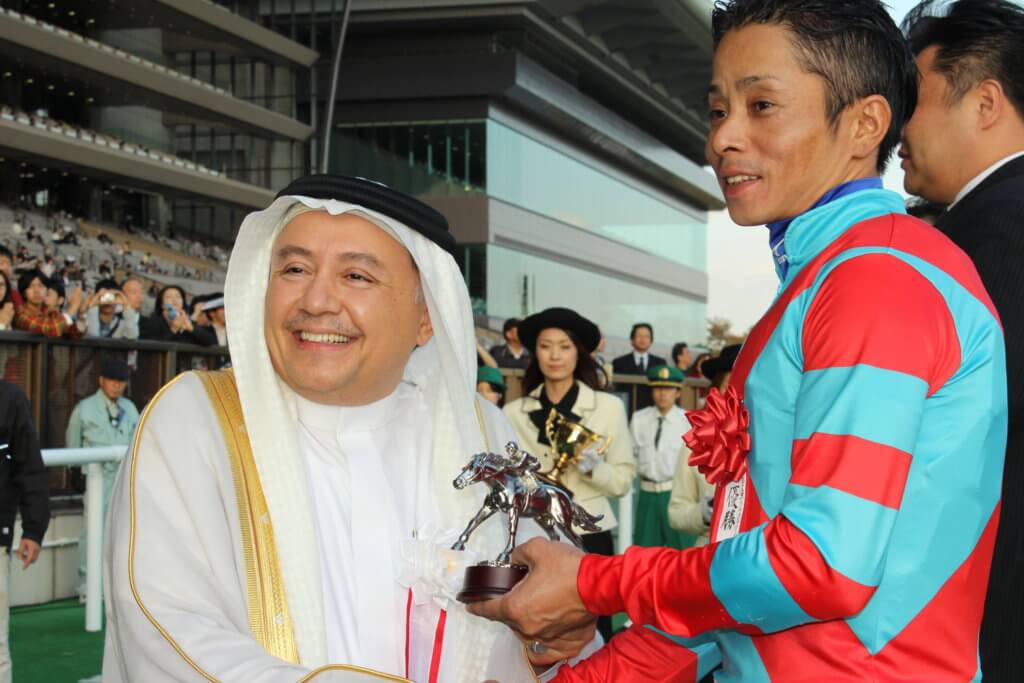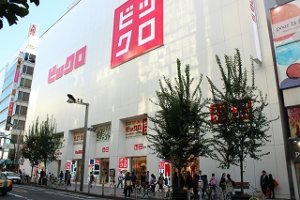Abdulaziz Turkistani: Ambassador to Japan from The Kingdom of Saudi Arabia (until 2015)
CONTENTS
"We need to build a strategic partnership."
“Oil and desert as far as the eye can see,” a Japanese man in his 50s once replied, after being asked to describe his image of Saudi Arabia. He was surprised to be informed that the desert occupies only one-third of that country’s total land area. A Japanese woman in her 30s was amazed to hear that that country is also in Asia. “Really?” she asked in a surprised tone. “I thought it was in Africa.”
Soccer fans might not be mistaken, however; they know Saudi Arabia is in Asia since it belongs to the Asian Football Confederation and its team often competes with Japan’s. But the image of the country among ordinary Japanese seems to be ill-informed or stereotypical, even though the two countries maintain an close economic and other ties that are expected to grow in the future.
In 2011, 33% of Japan’s crude oil imports were sourced from that country, making it the top among all suppliers of petroleum. Japan might need even greater supplies in the future. Kansai Electric Power Company (KEPCO) and four other major regional electric power utility companies have already made public their respective plans to raise electricity rates from next spring and beyond. KEPCO is considering a 10% increase for households and 20-30% for corporate users. These increases are a result of the higher costs for thermal power generation, which is now in full operation since most of Japan’s nuclear power plants have been shut down amidst the anti-nuclear power momentum that came about as a result of the March 11, 2011 earthquake and subsequent nuclear disaster. Crude oil is, of course, a major energy source for thermal power generation.
Importing mostly crude oil while exporting mainly automobiles and their related products, Japan has been running a heavily import-favored trade imbalance with Saudi Arabia; its trade deficit in 2011 reached 43.9 billion dollars.
In response to this situation, Ambassador Turkistani has been urging Japanese people to come visit his country and see it firsthand, as they are likely to discover many things aside from oil and the desert.
-------------------------------------------------------------------------------
Once, when speaking before students at a Japanese middle school and high school in Kanagawa Prefecture, the Ambassador related this humorous episode: “I heard the announcement, ‘The bus is about to turn, please give me 50 yen,’” he recalls. “So I gave the driver 50 yen and asked how many more turns there would be. But I had completely misunderstood. The announcement meant, ‘please be careful,’ a kind Japanese passenger explained to me.”
He had mistaken go-chui (be careful) for goju-en (50 yen). But this episode alone hints the Ambassador’s modest and warm-hearted demeanor, and from looking at his photos posted on the Internet, one can easily sense his good-natured disposition.
Following his graduation from King Abdul Aziz University, Abdulaziz Turkistani became the first student from Saudi Arabia to receive a Japanese government scholarship. He arrived in Japan in 1980.
“Many other students went to western countries,” the Ambassador recalls. “But I thought Japan is interesting. It has a long history and unique culture. When I was a high school student, I saw our king and the Japanese emperor together on TV and there was an interpreter in between them. I said to my mother, ‘I want to become an interpreter,’ but she replied, ‘Not an interpreter, become the ambassador to Japan.’ And it became my dream ever since.”
Since then more than 30 years have passed, and the dream of becoming Ambassador to Japan was realized upon his posting to Tokyo in June, 2009. Now many young Saudis have been following his footsteps, with about 450 students dispatched to Japan on the King Abdullah scholarship program. The program, which started in 2005, supports the studies of about 170,000 Saudi students in over 40 countries. In the background, the country aims to diversify its industrial base and put greater emphasis on developing its human resources.
Technologies and Rinri (ethics)
Asked by what he wants those Saudi youth to learn in Japan, the Ambassador raised two points: “Firstly, technologies and secondly, rinri (ethics). Engineering, science, environmental or medical technologies here are among the best in the world. About 70% of the students are majoring in the sciences, including such technologies as solar power, and the remaining 30% are studying management and marketing. But rinri is one of the most important things at work or in doing business. Work manners, dedication or commitment to the job, because unlike changing technologies, those ethics never fade.”
He repeatedly stressed this second point throughout the interview. “Japanese are willing to work hard. They work not only for money or for their boss. Japanese would attend a meeting even though their father had died. And after the meeting they might say, ‘My father passed away, so I will go back home now.’ They never break a promise. In business negotiations with Japanese, it usually takes long time and lots of effort until they sign a business deal. But once it is signed, we feel secure because we know they will keep their promise and observe a contract.” He thinks Japanese have strong work ethics which are rarely seen in other countries.
Interestingly, the Ambassador first witnessed this rinri not in business but through sports. Three Japanese table tennis instructors came to Saudi Arabia in 1976 and taught its national team with the aim of winning the championship in the Arabian Gulf Tournament within four or five years. “With dedicated and assiduous instruction and lots of practice, they achieved their goal in three years. The three instructors not only gave table tennis lessons, but taught rinri through sports. Mr. Furukawa [one of the three instructors] always went to the training place and cleaned up before the team came. The team was impressed with his deed. They taught why it is necessary to come early and why it is important to have a plan to achieve its goal. Nobody can win the championship after they practice only for one day,” said the Ambassador in an November 2009 interview that appeared in World Table Tennis.
At the time, the Ambassador was a student at King Abdulaziz University and while not a table tennis player himself, was impressed by the Japanese attitude. This was a key factor that kindled his dream to come to Japan to study.
Order and Politeness
The Ambassador also praised two other aspects of Japanese: their orderly lifestyles and thoughtfulness towards others. “Japanese tend to lead a very ordered life,” he observed. “They get up everyday at a set time, wash their face and brush their teeth, et cetera, and go to work by catching the same train at the same time. More than 30 million people are living in greater Tokyo and for those people to live harmoniously I think the city has to be systematized and people should act in an orderly manner.
“On a train, there are often announcements like, ‘If you are near the priority seats, please set your mobile phone to the silent mode.’ But in Japanese it is called the ‘manner mode.’ It shows their thoughtfulness or considerations towards others.”
For our readers’ reference, Japan’s land area is only about one-fifth that of Saudi Arabia, but Japan’s population of more than 126 million is almost five times greater. Certainly Japanese are likely to need a certain degree of consideration towards each other or in their public manners to enable them to share congested spaces with many others.
Ambassador Turkistani thinks these Japanese traits derive from the education. “Japan has scarce of natural resources, so they have been putting an emphasis on education which is bearing fruits now. I want our youth from Saudi Arabia to learn those things directly. As you know, ‘When in Rome, do as the Romans do.’”

H. E. Dr. Abdulaziz A. Turkistani
Born in 1958 in Taif, Saudi Arabia. After graduating from King Abdul Aziz University he obtained his MA from Waseda University in Tokyo and his PhD from Cairo University, Egypt in 1999. He worked as GM for the Abdulatif Jamil group, the Toyota & Lexus Distributor in Saudi Arabia, and as Dean, Business & Administration, Almajmma City, King Saud University, Riyadh, Saudi Arabia. He presented his credentials as Ambassador to Japan in 2009. (until 2015)
Japan Is ‘In’
In 2009 during the month of Ramadan, Saudi Arabian national TV featured a series about Japan, in which the programs noted how polite Japanese are and praised how they observe good manners in public. The TV series depicted, for example, evacuees patiently lined up to receive provisions after the March 11, 2011 disaster; pupils at an elementary school who swept their own classroom after class; a Japanese couple who found a lost wallet dutifully turned it in to the police, and so on.
The TV series was said to have made a great impact on the Saudi people and Japan has received much more attention ever since.
“After the series, and we were bombarded by calls and emails asking, ‘Is it true?’ or ‘I want to come to Japan, what should I do?’” says Haruna Shimizu, an administrative officer at the Royal Embassy of Saudi Arabia in Tokyo. “One Saudi Arabian married couple who had come to Japan left their wallet behind in the taxi. A Japanese man picked it up and figured out from the contents that the owner must be from Saudi Arabia. He called us at the embassy the next morning. The couple was impressed that what they had seen on TV actually happened to them and were eager to express their gratitude to him.”
It seems that people are still paying attention to Japan. Japan also became the first Asian guest country to participate at Janadriyah Festival 2011, the country’s traditional and cultural festival held every year near the country’s capital, Riyadh. The Japanese pavilion attracted around 300,000 visitors during the 16-day festival. According to a report by JETRO (the Japan External Trade Organization), 96.4% of those people surveyed responded they felt the participation helped in the understanding of Japan.
But what about the understanding of Saudi Arabia among Japanese? According to the data given by Ministry of Foreign Affairs, only a paltry 544 Japanese nationals were residing in Saudi Arabia as of 2011. In comparison, for example, more than 140,000 Japanese are living or working in neighboring China.
A Vast Islamic Market
The Ambassador stresses, “We have not only oil and desert but also mountains, the sea, greenery and even snow. I would like Japanese people to come and see our country firsthand. Please see our market and think what we can do together.”
In reality, Saudi farmers use underground water to grow roses that are even exported to Holland and cultivate rice fields in the north-eastern part of the country, which also boasts the world’s largest stock farm.
The Ambassador also emphasizes his country’s potential market size. “The Gulf Cooperation Council (GCC) has 45 million people and there are more than 350 million people in the League of Arab States, which designates Arabic as the official language,” he says. “And more importantly, we have the Two Holy Mosques at Mecca and Medina. There are 1.2 billion Muslims. You can set up a footing in Saudi Arabia and expand the business to elsewhere.”
While Saudi Arabia’s population is less than 30 million, if viewed in terms of the vast Islamic market, the potential seems very high. More than 15 million Muslims make the Haj pilgrimage to Mecca annually, leading the Ambassador to suggest, “Worshippers to Mecca surely buy souvenirs. I want them to buy made-in-Japan products.”
“We need to build a strategic partnership.”
So insists the Ambassador, who continues, “We want to have business with Japan, in the downstream oil sector for example, rather than with the US or European countries because Japan has rinri behind it. We can establish long-term relation with Japan and provide oil steadily.”
But last year’s trade statistics show that Japan has been lagging considerably behind China and South Korea. China, the number one exporter, increased its exports by 38.4% and South Korea by a whopping 63.4%, while Japan’s exports rose only 4.6%. Moreover direct investment from Japan has continued to decline year by year. The total amount of investment was 104 million US dollars in 2011, down from 378 million in 2009, according to data from JETRO. When asked about this situation, the Ambassador frankly suggests, “Saudi Arabia is like other regions free market amid ongoing globalization. In global competition, speed is important. Japanese are a bit too prudent. My humble suggestion toward Japanese is be courageous a little more and act swiftly sometimes. Due to the strong yen and for future economic growth, you need to sharpen competitiveness. Come to our country and let’s think about what we can do.”


